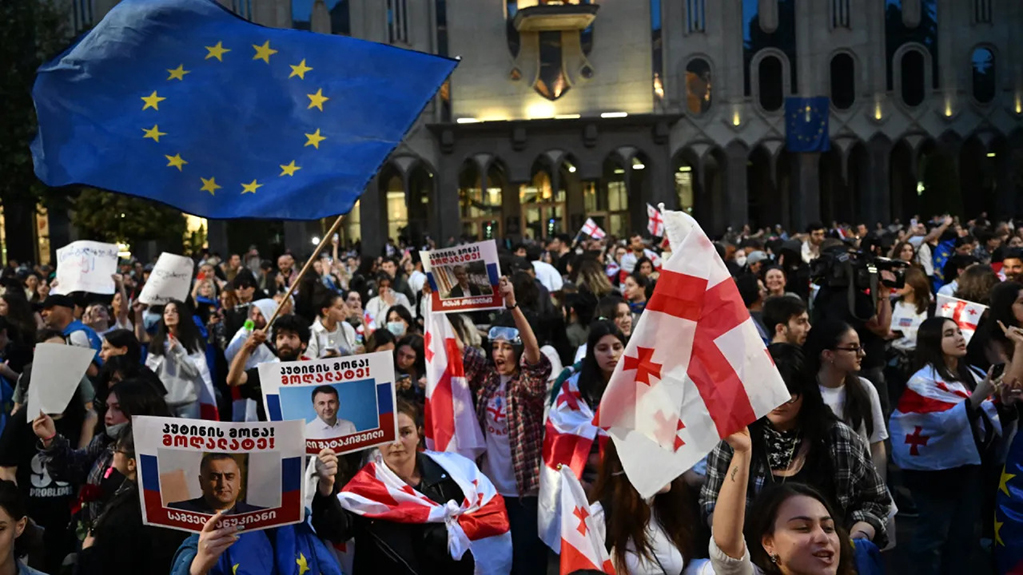Ten non-governmental organizations working on peace in Georgia have begun registering as so-called agents. In their statement, they emphasized that if the Constitutional Court does not suspend the Russian law, they will be compelled to complete the registration process.
News
The decision to register was made by the following organizations: Studio Re, the National Committee of the Helsinki Citizens' Assembly, the Levan Mikeladze Foundation, the Peaceful and Business Caucasus Association, For the Rights of IDPs, the Education and the World Union of Teachers, the Foundation of Women Entrepreneurs, the Momavlis Tskhinvali Union, the Imedi - Displaced Women's Movement for Peace Association, and the Abkhaz Intercont Foundation.
"We, the undersigned organizations, publicly declare that the adoption of the law On the Transparency of Foreign Influence by the Parliament of Georgia stigmatizes us in an entirely undeserved and insulting manner. Equally important, the law and the circumstances surrounding its adoption harm the true national interests. As a result of the law's passage, we are witnessing both public unrest and the real prospect of escalating political tensions. Additionally, there has been an unprecedented deterioration in relations with international partners, which is already negatively affecting Georgia’s prospects for European and Euro-Atlantic integration, as defined by the Constitution, along with several cooperation and aid programs. We are deeply concerned about the potential consequences, which may manifest in widespread social apathy, increased emigration, and diminished prosperity for the country.
In the statement from April 11 of this year, signed by 32 entities, including ourselves, it was noted that if the law were to come into force, the long-term and complex process of communication with the communities of Abkhazia and the Tskhinvali region/South Ossetia would be at risk. It was also emphasized that active cooperation between non-governmental organizations, experts, and the Parliament of Georgia, as well as other relevant state agencies, would become difficult.
We hope that sooner or later the government will heed our concerns and repeal the law on transparency of foreign influence. Until then, we will await with hope for the Constitutional Court to suspend the law. However, if this does not happen in time, we will be compelled to comply with the legal requirements and complete the registration of our organizations in the relevant register, despite our unwillingness to do so.
Otherwise, being fully aware of the financial, political, logistical, and legal barriers and risks, we believe that serious damage will be done to the process of trust-building and peace-building in Abkhazia and the Tskhinvali region/South Ossetia, in which our organizations are actively involved," states the declaration released by the organizations today.
The voluntary registration period for non-governmental and media organizations that have received more than 20% of their income from abroad in the special register, created under the Russian law on so-called foreign agents, expired on September 2. Starting from September 3, the Financial Monitoring Department of the Public Registry has the authority to inspect and fine any organizations that refused to register.
According to the latest information from the Ministry of Justice, 476 organizations voluntarily registered as "carrying the interests of a foreign power," which accounts for approximately 1.5% of the total number. Following public dissatisfaction, the Shame movement, which was actively involved in protesting against the Russian law, reconsidered its stance on voluntary registration. Many organizations have decided to cease their activities.
The Russian law has been challenged in the Constitutional Court. The plaintiffs, including the president, opposition MPs, and various non-governmental and media organizations, argue that the law contradicts several articles of the constitution and should therefore be repealed. They are requesting that the Constitutional Court suspend the law’s implementation until a final decision is reached. In the coming days, it will be determined whether the court will admit the lawsuits, in whole or in part, and whether it will decide to suspend the law's operation.















